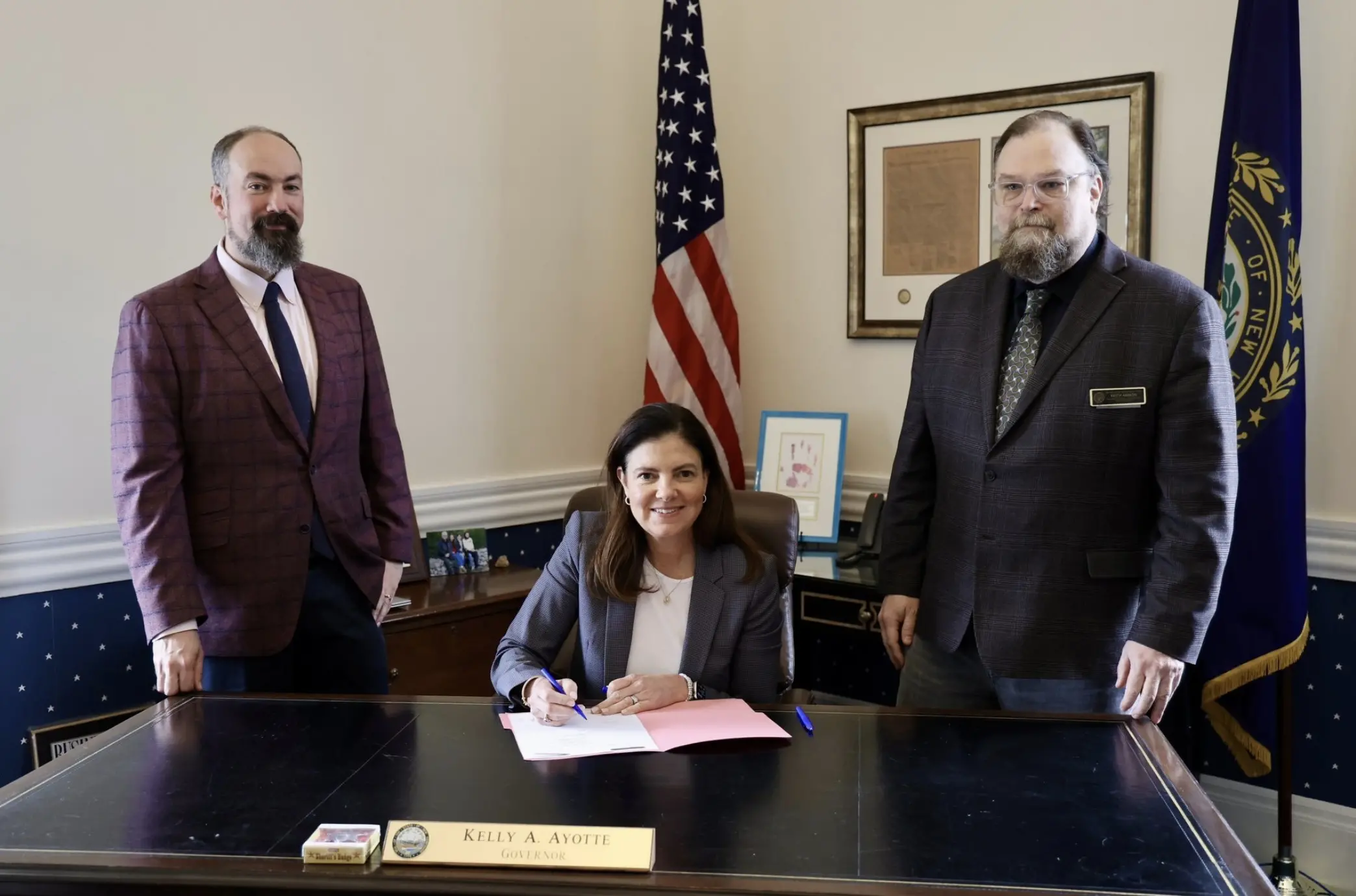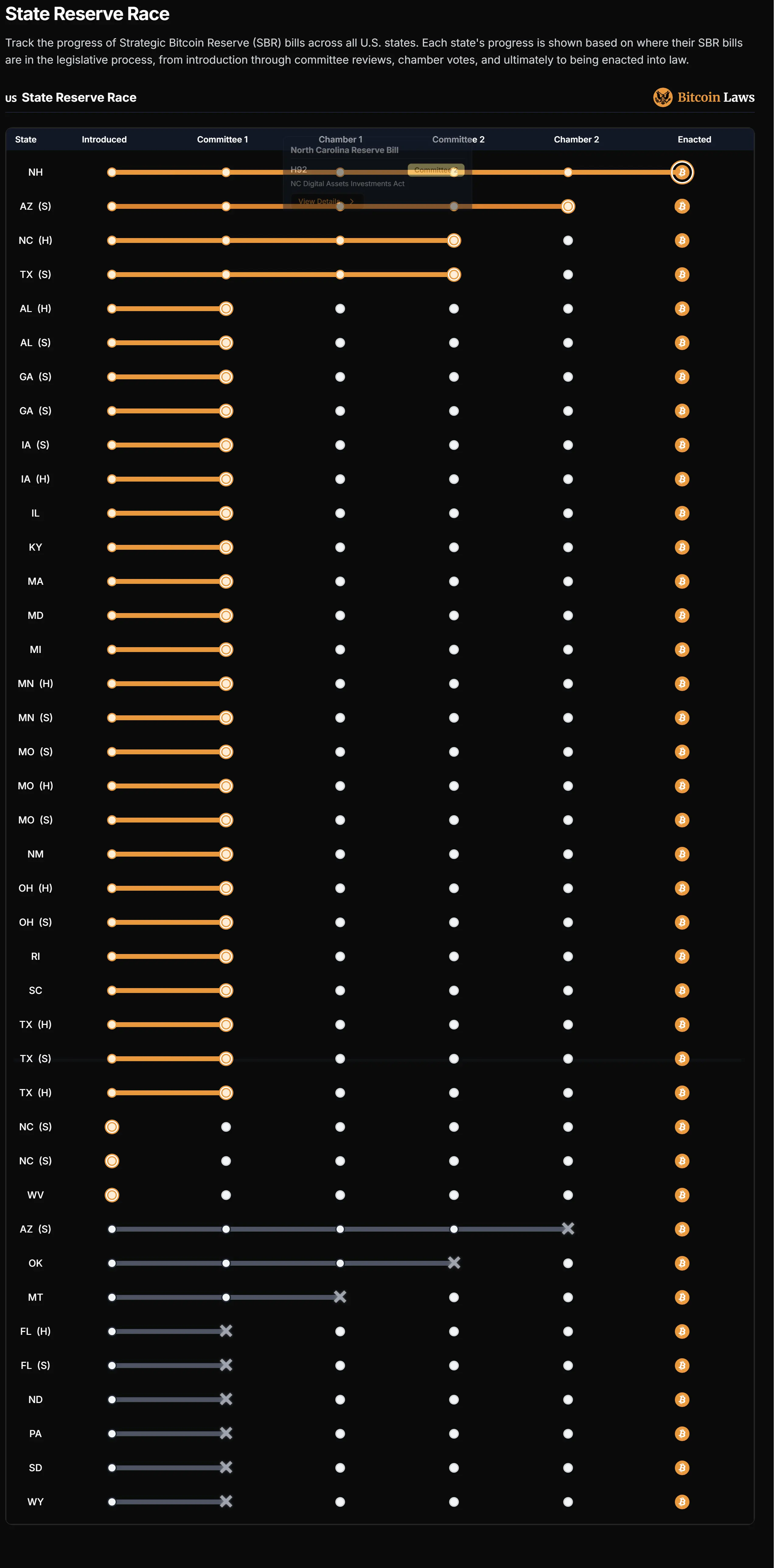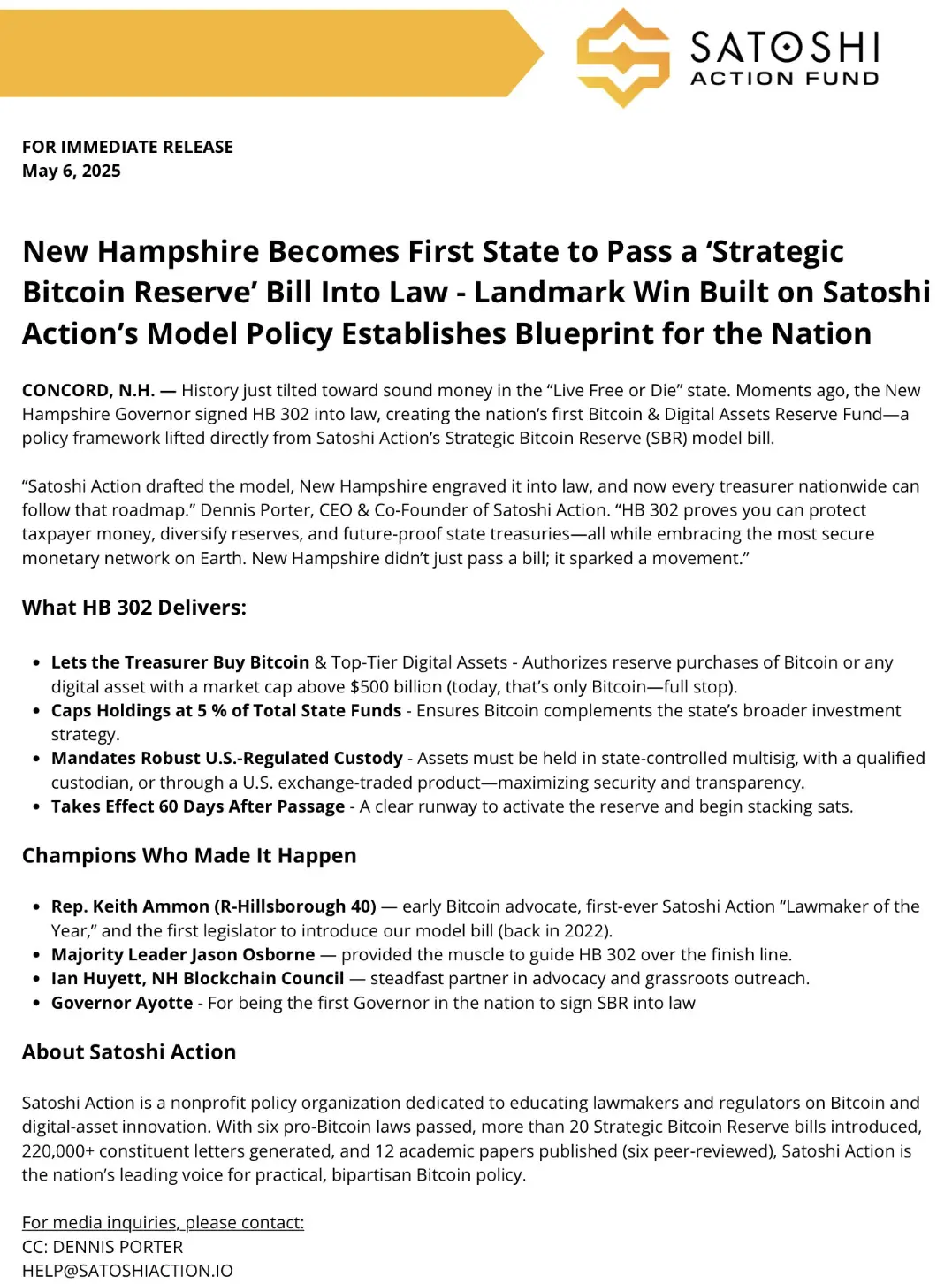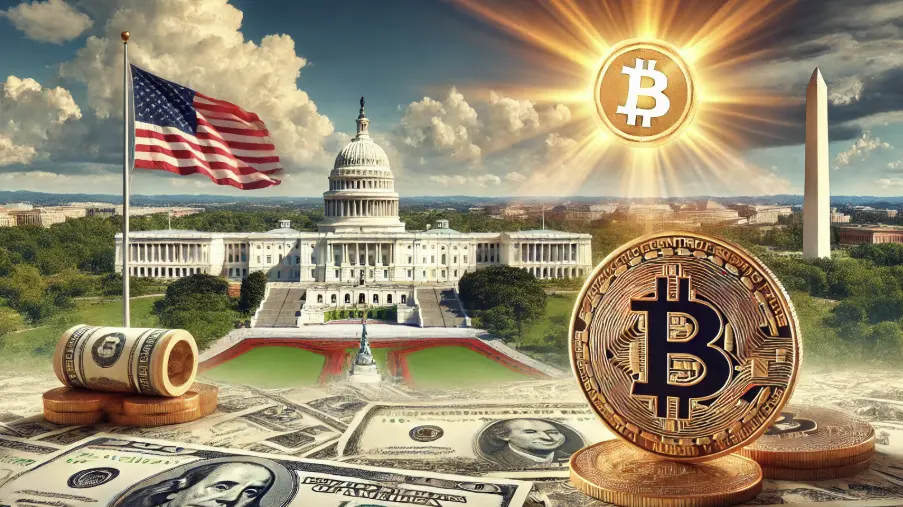作者:Fairy,ChainCatcher
编辑:TB,ChainCatcher
历史性的一步!比特币正式走进了州政府的“金库”。
昨晚,新罕布什尔州率先通过比特币战略储备法案(HB 302 ),成为美国首个将比特币纳入官方资产储备的州。
这一开创性举措,如同第一面旗帜,点燃了金融格局变革的火种,而火焰正迅速蔓延。

小州大志,比特币储备破冰之旅
在美国的版图上,新罕布什尔州或许并不显眼。这片土地面积排名全美倒数第五,人口数量位列倒数第十,2024年实际GDP约为965亿美元,在50个州中算不上重量级选手。然而,这个小州却以一句响亮的州训“Live Free or Die”(不自由毋宁死),塑造了与众不同的存在感。
新罕布什尔州拥有极高的政治象征意义,是全美总统初选的首站,被媒体与政客视为重要的政治“试金石”和风向标。这种制度与文化上的开放性,可能正是其在数字资产政策上走在全国前列的关键原因。如今,它成为全美首个将“比特币战略储备”纳入州政策的州,再次扮演了政策“破冰船”的角色。
这项立法不仅具有象征意义,更像是一记信号弹,向其他州释放出明确的政策信号,激励更多地方政府在数字资产领域迈出实质性一步。据 Bitcoin Laws 数据显示,目前全美有30项比特币储备法案在推进中。其中进展较快的包括:亚利桑那州的 SB1373 法案已进入最后阶段,北卡罗来纳州的 H92 和得克萨斯州的 SB21 正在州参议院审议;另有9项提案已遭否决。
以下是美国各州比特币储备立法的最新进展(部分州可能提交多个法案):

图源:bitcoinreservemonitor
比特币进入州财政资产“朋友圈”
新罕布什尔州通过的 HB 302 法案基于 Satoshi Action 提出的政策模型,将在通过60天后正式生效。根据该法案,所有数字资产必须通过州政府控制的多重签名钱包、合格托管机构或美国上市的交易产品进行持有,以确保安全性与透明度。
法案授权财政官购买比特币及其他顶级数字资产,并允许储备购买市值超过 5000亿美元 的数字资产。目前,唯有比特币符合这一标准。根据代币流通数据,以太坊需涨至约 4166美元,SOL需升至约 833美元,才能被纳入该储备范围。
为了控制波动风险,法案规定数字资产最多只能占州财政资金的 5%。据加密KOL Phyrex 估算,按新罕布什尔州 154 亿美元的总预算计算,潜在可用于配置数字资产的资金达 7.7 亿美元;即使仅以一般基金规模 56 亿美元为基准,也有 2.8 亿美元的投资空间。

图源:Satoshi Action Fund
国家比特币储备计划同临关键期
美国国家比特币战略储备计划也正处于关键时刻。3月6日,特朗普政府发布行政命令,要求财政部长在60天内提交执行报告,明确是否启动该储备计划以及具体实施路径。当前,这一重要日期已到,市场与政界的目光纷纷聚焦这一潜在的政策拐点。
然而,这一计划并非没有阻力,特朗普的加密新政遭遇民主党激烈反对。
4月29日,民主党议员玛克辛·沃特斯阻止了《加密市场结构法案》听证会的召开。
5月1日,民主党议员伊丽莎白·沃伦联合五位同僚,向财政部长递交了一封12页的联名信,批评特朗普政府将加密资产纳入国家战略储备的计划,警告该计划“可能对美国金融体系稳定构成系统性威胁”。
5月4日,4位民主党参议员突然转变立场,反对共和党主导的稳定币法案《GENIUS 法案》现有版本,要求强化反洗钱和外国发行人审查。这一转变使法案前景陡增变数。
在此背景下,特朗普的比特币战略储备计划正面临政治重压。

这场加密资产与传统财政制度的碰撞,将可能在未来的岁月里深刻影响美国乃至全球的金融格局。新罕布什尔州的先行一步为其他地方政府树立了标杆,激励着更多州迈向数字资产的新时代。尽管特朗普的比特币战略储备计划面临着来自民主党等方面的阻力,但其依然在向前推动。
一场前所未有的政策与市场变革,正在展开。
免责声明:本文章仅代表作者个人观点,不代表本平台的立场和观点。本文章仅供信息分享,不构成对任何人的任何投资建议。用户与作者之间的任何争议,与本平台无关。如网页中刊载的文章或图片涉及侵权,请提供相关的权利证明和身份证明发送邮件到support@aicoin.com,本平台相关工作人员将会进行核查。




